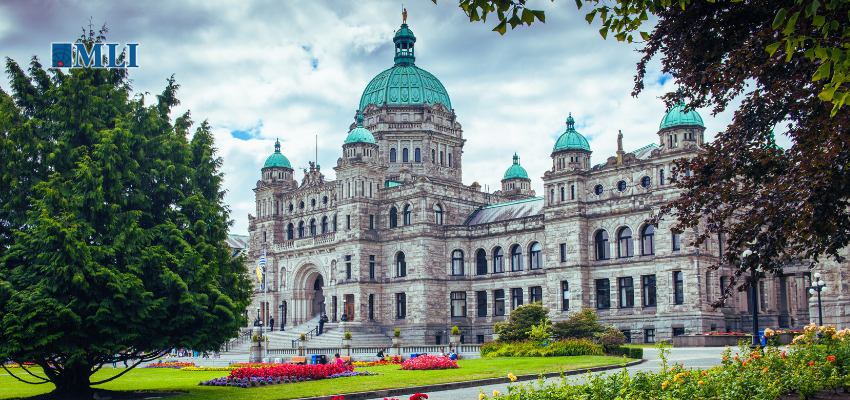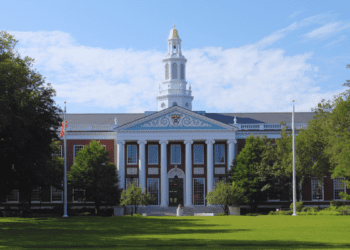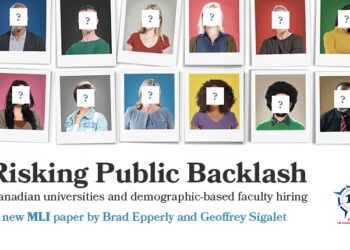This article originally appeared in the National Post.
By Leonid Sirota and Mark Mancini, March 17, 2025
Desperate times call for desperate measures. That appears to be the British Columbia government’s mantra as it attempts to fight the risk of U.S. President Donald Trump’s tariffs. But in its desperation, the government is trying to take for itself far-reaching powers that smack of the arbitrariness and authoritarianism that characterize the Trump administration. That administration is a threat to Canada, but in fighting that threat, we should not become that which we abhor.
Tabled by Attorney General Niki Sharma, Bill 7 contains extraordinary powers that purportedly aim to protect the province from Trump’s agenda. It allows the cabinet to amend almost any laws enacted by the B.C. legislature without securing the legislature’s approval. The restriction on this power is that the amendments have to be for the purpose of “addressing challenges, or anticipated challenges, to British Columbia arising from the actions of a foreign jurisdiction” or otherwise of “supporting the economy of British Columbia and Canada.” This is no restriction at all; just about any measure the government can conceive can be said to have this purpose.
In legalese, a power for ministers to override legislation is called a Henry VIII clause. That Tudor King, you see, was not only fond of imposing his wavering religious beliefs onto his subjects and of having his wives and ministers killed. One of these ministers, Thomas Cromwell, came up with an ingenious idea to sate the king’s power hunger: get Parliament to pass an act to enable the king to issue proclamations having the force of an Act of Parliament.
Cromwell was eventually beheaded for his troubles, and the clever legislation he invented was repealed, but the idea remained. Henry VIII clauses, enacted by the legislature, allow the cabinet to bypass the normal legislative process when it chooses to amend a statute.
But, as one might surmise given their origins, these clauses are constitutionally troubling. We expect the legislatures of the provinces and the Parliament of Canada to make laws, not ministers. Legislatures debate and scrutinize bills before they become law, and in the process enable the opposition to bring the proposed laws’ shortcomings to the public’s attention. They can also invite submissions from the public that allow them to take the views of the people affected by the laws into account. None of that is possible when ministers can override legislation without parliamentary input.
A broadly worded Henry VIII clause makes it almost impossible for the courts to ascertain whether the ministers have complied with the limits that the legislature has ostensibly imposed on their power. Can a court tell whether a law is being overridden or changed “to support the economy”? This is hardly plausible, and experience with a very similar provision of New Zealand’s Economic Stabilisation Act 1948, which was in force for almost 40 years, suggests not. This undermines the principle of the rule of law, which requires the power of the executive branch to be circumscribed and limited.
For its part, the Supreme Court of Canada accepts that Henry VIII clauses are constitutional because, so long as the legislature can repeal them, they do not amount to an “abdication” of legislative power. But whatever we may think of the court’s position as a matter of law, there are good reasons of principle to fear Henry VIII clauses. They betray the role of the legislature with a kiss and make law-making into the preserve of a cloistered few rather than the full body of men and women elected by the voters, and give the executive a free ride to govern without meaningful parliamentary or judicial scrutiny. This is why some say that Henry VIII clauses should be “confined to the dustbin of history” as a matter of parliamentary practice. Even if this position goes too far, Henry VIII powers should be tightly confined and used sparingly.
Evidently, the B.C. government does not think so, because it has proposed a Henry VIII clause of astonishing proportions — something certainly approaching “abdication.” Normal Henry VIII clauses purport only to give power to the executive to amend a specific law and for specific purposes. This might explain why the Supreme Court has generally approved of such clauses.
But Bill 7 gives the power to the provincial cabinet to amend almost any provincial law, and for a purpose as broad as the government’s imagination. It is as if the executive had, in response to Trump, replaced the legislature. Whatever a court might say about this, Canadians should be alarmed by attempts to subvert parliamentary institutions.
What justification could possibly be offered for this? Sharma, in tabling the bill, mentioned that the legislation is designed to provide “fast, flexible, regulation-making authorities to ensure we can quickly act and be responsive to the unpredictable and quickly evolving threats to our economy, our economic security and our sovereignty.”
Given the breadth of the proposed Henry VIII clause, this is wholly unsatisfactory. The standing orders of the B.C. legislature already provide for urgent procedures, including the enactment of legislation. Why can’t the government go to the legislature to seek approval for its plans to deal with the Trump threat? Why does the bill not contain any proper review mechanism for the legislature (short of a weak requirement to table any regulations created under the law)?
At a time when the rule of law is under threat in the United States, Canadians should not participate in a race to the bottom. Just a few years ago, the federal government invoked the Emergencies Act, a move later found to be without legal justification. The lesson should have been simple. Cutting corners because of a threat — or because of ill-conceived hopes of “flexibility” — is one way to erode the rule of law and parliamentary institutions in our own country.
It would be an ironic response to the Trumpian threat to join him in super-charging executive power and sidelining courts and legislatures. The B.C. government needs to re-think Bill 7.
Leonid Sirota is an associate professor at the School of Law of the University of Reading.
Mark Mancini is an assistant professor at Thompson Rivers University Faculty of Law. Both are senior fellows at the Macdonald-Laurier Institute.






